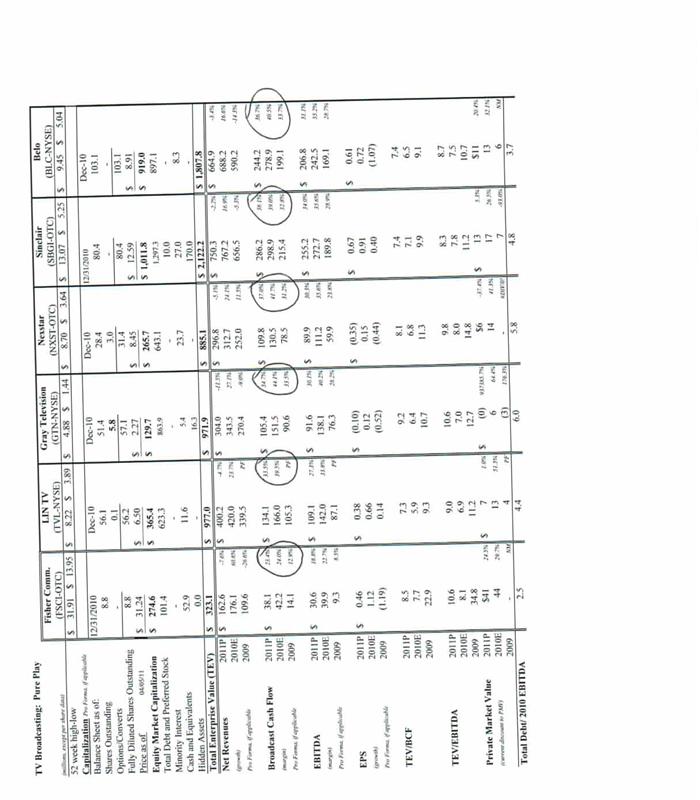We acknowledge the Staff’s comment and will ensure that all supplemental supporting documentation is submitted as correspondence on EDGAR.
| 2. | We note your response to prior Comment 1 and reissue the comment. You have four nominees who are not designated to serve in any particular class (i.e., for a particular term). Once votes are tabulated, the arrangement makes it possible for your candidate to be assigned to Class I or Class III. It would appear that shareholders who vote for a nominee should also be permitted to vote on the separate matter of the class and, therefore, the term of the director nominee. Since it appears that you are seeking shareholder approval for (i) nominees to the Board and (ii) the authority to assign candidates to a particular class after giving effect to cumulative vote tallies, please disaggregate the two matters and revise your proxy statement and proxy card accordingly or advise. Refer to Rule 14a-4(a)(3). |
We acknowledge the Staff’s comment regarding prior comment 1. On a supplemental basis, we advise the Staff that as of January 27, 2011, the date that FrontFour delivered a letter to the Company nominating Messrs. Goldfarb, Loukas, Powers and Troy for election at the Annual Meeting, there were four Class III directors with terms set to expire at the Annual Meeting. Accordingly, FrontFour’s director candidates were nominated as Class III directors. Subsequently on February 25, 2011, the Company announced the election of Anthony Cassara to the Board to fill the vacant seat formerly occupied by Deborah L. Bevier, who resigned from the Board in December 2010. The Company announced that Mr. Cassara would be standing for election at the Annual Meeting as a Class I director. Thereafter, on March 8, 2011, the Company announced that William W. Warren, Jr. has decided to retire from the Board and not stand for re-election when his term expires as a Class III director at the Annual Meeting. The Company stated it will not fill the Class III seat he currently occupies and the size of the Board will be reduced from ten directors to nine as of the Annual Meeting. The next day Fisher announced that that another member of that class, William Warren, has decided to retire from the Fisher Board as of the Annual meeting.
During the week of March 14, 2011, counsel for the Company informed us that the Company expects to nominate four directors at the Annual Meeting, consisting of three Class III director candidates who will run for a three-year term and one Class I candidate who must run for a one-year term in order to make the classes as equal as possible under the Washington Business Corporation Act (“WBCA”). Also, under the WBCA, the classes must be as nearly even as possible and, if cumulative voting is authorized, any provision establishing staggered terms of directors shall provide that at least three directors shall be elected at each annual shareholders' meeting.
Therefore, an issue arose as a result of the fact that Fisher (i) has a classified Board and (ii) permits shareholders to cumulate votes in the election of directors. We have reviewed the WBCA and the matter of the voting mechanics at the Annual Meeting with local counsel in Washington. We find no precedent on point to this situation but our reading of the WBCA and the legislative history suggests that the best and most consistent method to effect voting at the Annual Meeting would be for each share of common stock to be able to have 4 votes in the election of directors and to be able to cumulate those votes as each shareholder designates with respect to the four director nominees of the eight in total up for election. We further note that we are not aware of any situation where shareholders vote to determine which class a director is elected to. We believe that so long as the proxy statement fully discloses to shareholders the situation involving the election of directors at the Annual Meeting and the possible outcomes, then shareholders will have a full understanding of the implications of voting their shares and will be able to cumulate their shares, to the extent they chose to, accordingly. We do not believe this voting mechanic rises to the level of a separate matter under Rule 14a-4(a)(3).
We have revised the Proxy Statement to further disclose that in the event that Mr. Cassara is not one of the Elected Nominees, there lies the possibility that a director who was originally nominated as a Class III director will end up serving as a Class I director. Please see page 10 of the Proxy Statement.
| 3. | Refer Please revise to designate in the proxy statement and on the proxy card whether a particular nominee is a Class I or Class III candidate if the candidate is amongst the top 4 candidates elected or advise us of why such designation is unnecessary. |
We acknowledge the Staff’s comment and have disclosed in the proxy statement that unless otherwise instructed by shareholders, the FrontFour proxy holders intend to cumulate such Shares such that if the four FrontFour Nominees are elected, then Mr. Loukas will be elected as the Class I director. Please see page 25 of the Proxy Statement.
* * * *
April 8, 2011
Page 4
In connection with responding to the Staff’s comments, a certificate signed by each of the participants containing the three acknowledgments requested by the Staff is attached hereto.
The Staff is invited to contact the undersigned with any comments or questions it may have. We would appreciate your prompt advice as to whether the Staff has any further comments.










